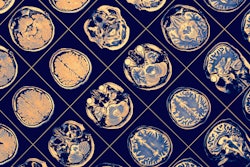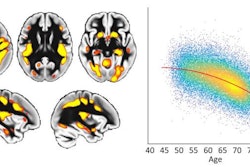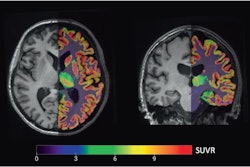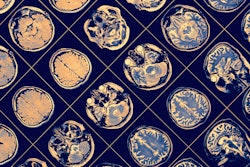A greater sense of one's purpose in life improves brain health as we age, researchers have reported.
Diffusion-weighted MRI showed positive associations in both white matter and the right hippocampus, the latter of which is an area of the brain that "retains the capacity to grow and adapt through old age," wrote a team led by Ajay Kumar Nair, PhD, of the University of Wisconsin-Madison. The research was published March 4 in Frontiers in Psychiatry.
"Our findings suggest pathways through which an enhanced sense of purpose in life may contribute to better brain health and promote healthy aging," the group wrote.
A robust sense of purpose in life is associated with several health benefits relevant for active aging – including mitigating loneliness, staving off cognitive impairment and Alzheimer's disease, and delaying the onset of dementia -- but the "mechanisms remain unclear," Nair and colleagues noted. To address this knowledge gap, the investigators evaluated any links between individuals' sense of life purpose and brain health measures through a study that included data from 138 men and women enrolled in the Midlife in the United States (MIDUS) Neuroscience Project (mean age, 65 years; 37, or 27%, were Black, Indigenous, and people of color).
All study participants completed a seven-point questionnaire adapted from Ryff’s Psychological Well-Being scale, which included statements such as “I enjoy making plans for the future and working to make them a reality" and underwent diffusion-weighted MRI, which assessed radial kurtosis and intra-axonal diffusivity as indicators of brain health. The team examined any links between the questionnaire scores and the diffusion metrics in white matter and in the bilateral hippocampus, adjusting for age, sex, education, and race. (The hippocampus is involved in learning and memory, and although it is vulnerable to stress, it maintains the capacity "to grow and adapt through old age," according to the group.)
The investigators found that a greater purpose in life score was associated with higher radial kurtosis (ß = 0.00388, p < 0.001) and lower intra-axonal diffusivity (ß = -0.00383, p < 0.001) in the whole "brain white matter mask" as well as in the right hippocampus (ß = 0.00267, p < 0.001 and ß = -0.00271, p = 0.019, respectively) -- both indicators of brain health.
The results underscore the need for more research and the development of supportive interventions for aging patients, according to Nair and colleagues.
"Since purpose in life is known to decline with age, interventions and policy changes that facilitate a greater sense of purpose may extend and improve the brain health of individuals and thus improve public health," they concluded.
The complete study can be found here.




















